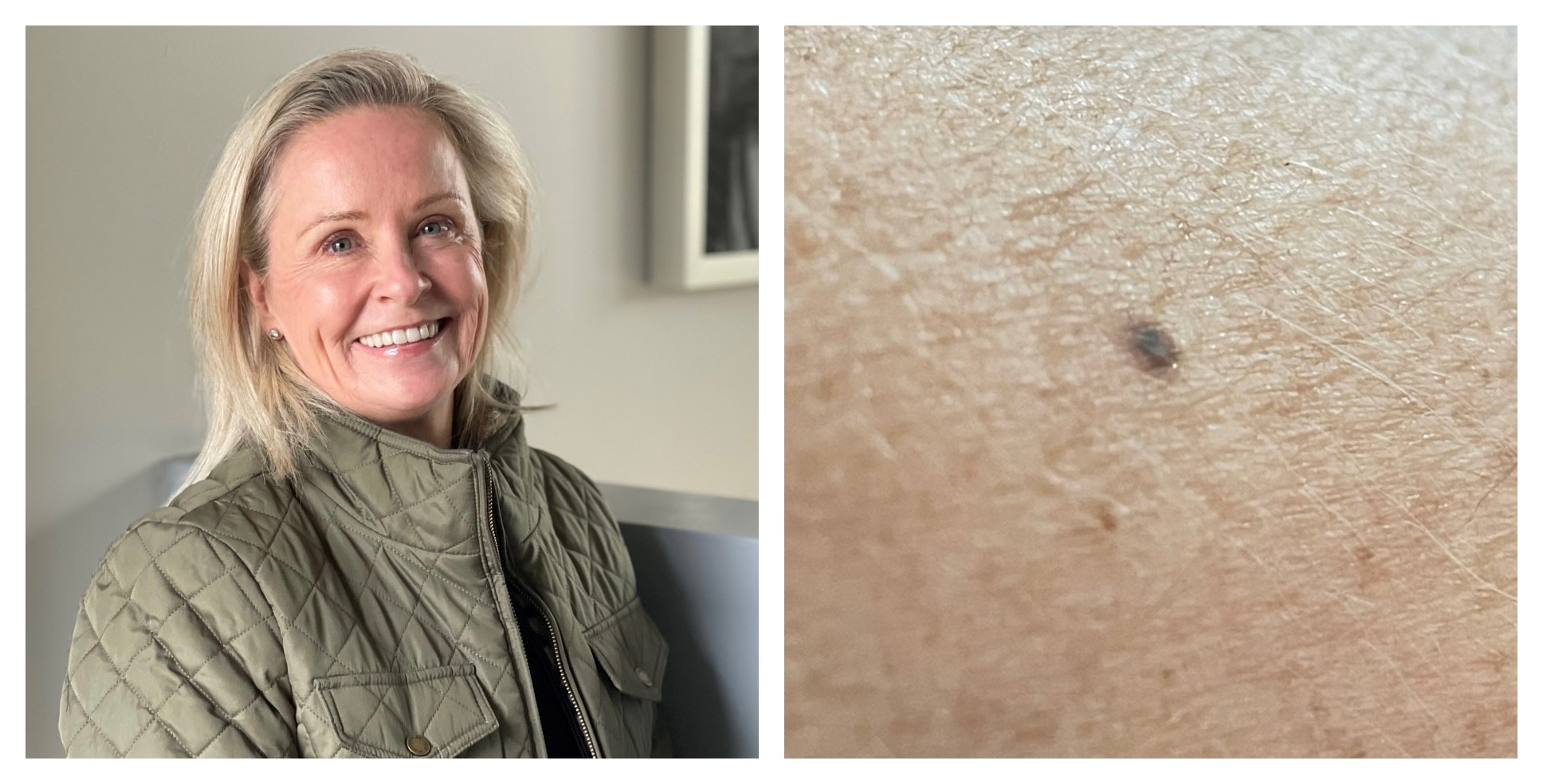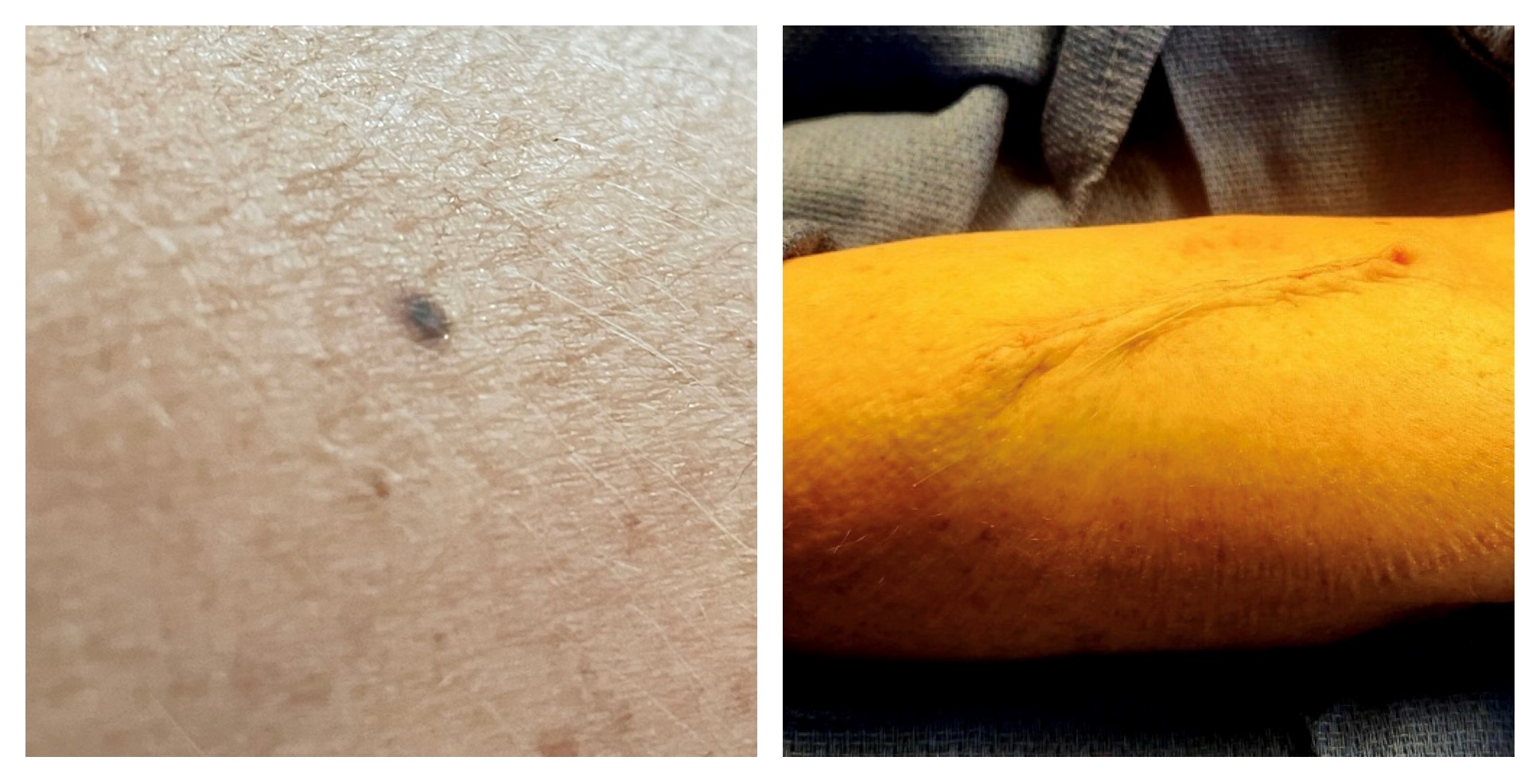You may have noticed an uptick in news stories and social media posts about cancer prevention over the last few weeks. February marks National Cancer Prevention Month – an opportunity to raise awareness about cancer risk factors and preventative measures.
The campaign now holds a deeper meaning for Illinois researcher Deana McDonagh, who started her year with a life-changing experience.

Left: Deana McDonagh. Right: Freckle found on her arm.
“I saw a freckle that looked like it didn’t belong on my Irish skin. It was flat – light brown underneath – and had a darkness. The edges were not sharp, and so I went to the dermatologist, and I said, ‘I really need you to look at this.’”
A biopsy confirmed McDonagh’s intuition – the freckle didn’t belong on her skin. It tested positive for malignant melanoma.
“When you’re looking at a screen, and you’re seeing the words, ‘malignant melanoma,’ those words seem kind of passive when the condition itself is extremely aggressive,” said McDonagh. “It’s a lot to process.”
The American Cancer Society (ACS) reports melanoma accounts for only 1% of skin cancers but still constitutes a large portion of skin cancer deaths, although there was a decrease in the last decade because of advancements in treatment. The ACS has compiled a list of possible signs and symptoms, as well as an image gallery here.
McDonagh was in surgery just one day after getting her diagnosis. Doctors removed a piece of skin much larger than the initial freckle, and while the size of the scar was shocking, it confirmed to McDonagh the severity of the situation. To her relief, doctors confirmed they were able to remove everything.
“If I have to live with a few scars on my body, it’s not ideal. But it’s worth it if it gives me quality of life, and I’m here to continue this work.”

Left: Freckle on McDonagh’s arm. Right: Scar after surgery.
The work she’s referencing is her work as Director of the (dis)Ability Design Studio at the Beckman Institute. The studio is a space for researchers, students, and developers to create prototypes that make life more accessible. McDonagh’s brush with cancer has invigorated her efforts to fulfill an idea she’s had for years: a bathroom that can screen your body for health issues.
“I would love the bathroom, especially the shower, to be a place to monitor your skin. The bathroom could alert you to places on the body that you can’t be vigilant about because you can’t see them. I think that may save lives.”
McDonagh hopes to reach potential collaborators in the science and engineering spaces to make the project come to life. In the meantime, her everyday life now looks a little different. A previous lover of sunbathing, she’s considering how to cover up her skin better and ensuring she frequently applies sunscreen with a high SPF. McDonagh also hopes her story serves as a message to others.
“In a strange way, it makes you stop and think, and you realize how grateful you should be for what you’ve got. This experience was a wake-up call. I want this to encourage people. Check on your loved ones – your children, partner, and friends. If you see something, say something.”
Editor’s Notes:
Deana McDonagh is a Professor of Industrial Design in the School of Art and Design in the College of Fine and Applied Arts, Director of the (dis)Ability Design Studio at the Beckman Institute, and a Health Innovation Professor at the Carle Illinois College of Medicine. She can be reached at mcdonagh@illinois.edu.
The (dis)Ability Design Studio is located in room 1534 on the first floor of the Beckman Institute.
Story written by Jessica Clegg, CCIL Marketing & Outreach Specialist
